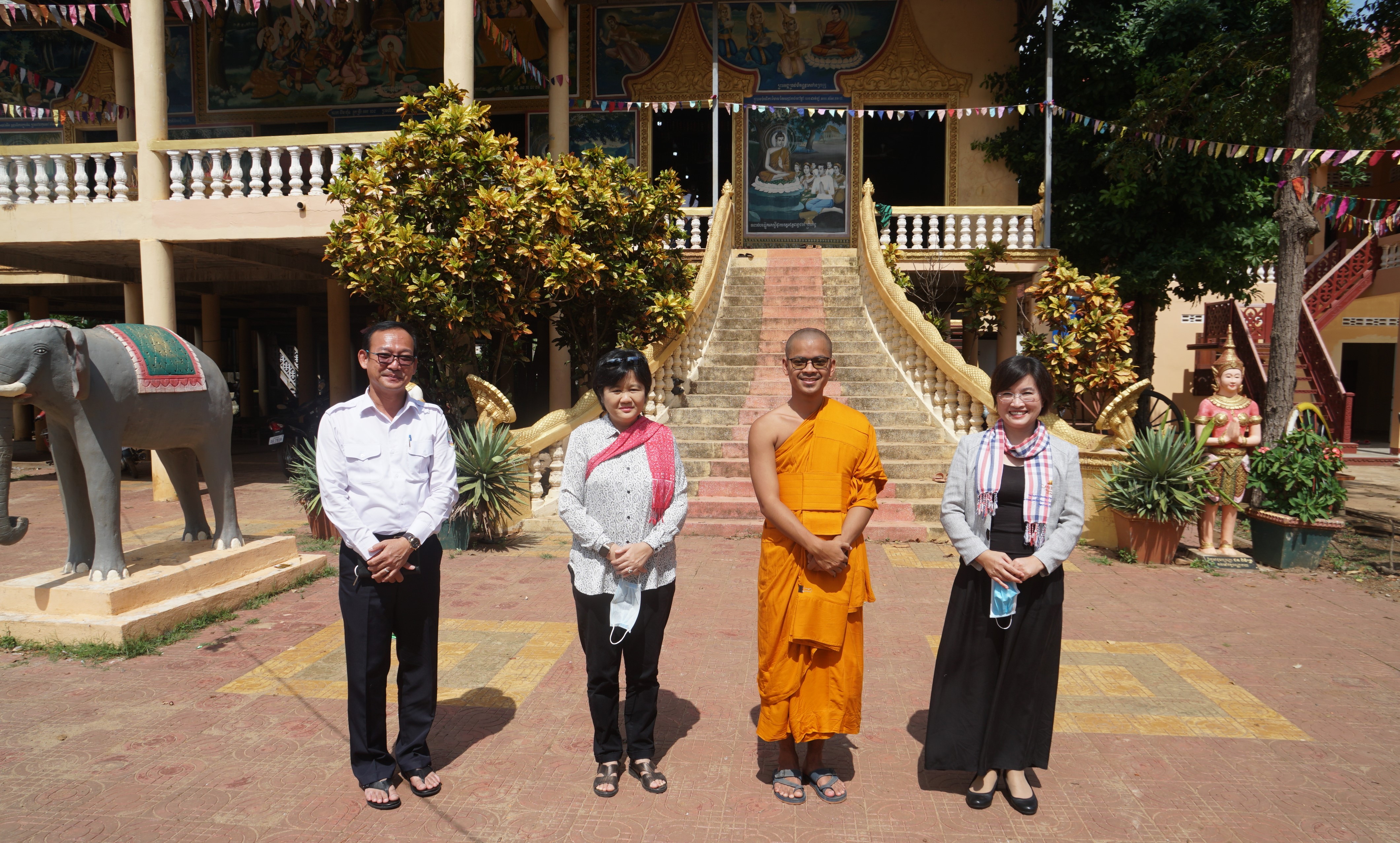Dr Li Ailan, WHO Representative to Cambodia, together with Her Excellency Dr Or Vandine and officials from the Ministry of Health (MOH), provided advice and support to Stung Treng, Tbong Khmum and Kampong Cham provinces in preparing for and responding to the COVID-19 pandemic. Throughout the joint MOH-WHO mission from 31 August to 4 September 2020, Dr Li and the MOH delegation met with provincial governors, leaders and officials from provincial health departments, health workers and patients at various health centres, religious leaders and community members.
WHO is pleased to see that efforts are ongoing in strengthening surveillance and response systems as well as local preparedness and response. Dr Li commended the efforts of authorities at different levels and encouraged them to prepare for and respond to COVID-19.
As of 14 September 2020, Cambodia has recorded 275 confirmed cases of COVID-19 with no deaths. The majority of cases (more than 85%) have been imported. Currently, there is no community-level transmission.
In addition to policy and technical advice on local preparedness and strengthening health systems, Dr Li made three specific observations:
- Health workers have become more confident. There has been a shift from fear to confidence in dealing with COVID-19. In March and April 2020, when Cambodia responded to initial clusters of COVID-19, some local governmental officials and health workers, including rapid response teams, doctors, nurses, midwives, and ambulance drivers, were panicked. Many health workers were afraid of transmitting the disease to their families. Rather than going home, they either stayed in the hospital or at accommodation outside their homes. With more training and the provision of personal protective equipment (PPE), health workers have now become more confident. This is an encouraging sign as they are the first line of the defense.
- Some people have grown complacent and are not entirely complying with public health advice and measures. Cambodia responded well to the initial cases of COVID-19. However, no cases does not mean no risk. As long as the virus is circulating in other countries, Cambodia is at risk. As good citizens, everyone needs to take responsibility to comply with public health measures. Changing behaviour and social norms is not easy, but it is not impossible. We can all do better. The individual actions we take now will keep us and our families safe today and in the future.
- Community leaders, such as religious leaders and chief monks, play a vital role in fighting against COVID-19 in local contexts. Religious leaders are well respected by local communities and can support community members in actively following public health guidance. It is important to strike a balance between holding social events and protecting health. Mental health and psychosocial support are an integral component of COVID-19 preparedness and response. Religious festivals such as Pchum Ben can be held differently to ensure good public health measures are in place.

Her Excellency Dr Or Vandine and Dr Li Ailan, WHO Representative to Cambodia, visited pagodas during the joint mission.
© WHO/Bunthann Inn
At the end of the field mission, Dr Li reminded the public to make safe and healthy choices, especially while celebrating Pchum Ben:
- Be vigilant. Religious leaders, pagoda committees, and local community members need to remain vigilant because COVID-19 is not going away soon. Despite zero deaths thus far, COVID-19 risk remains high in Cambodia.
- Be ready to respond. Everyone should prepare to respond to COVID-19. Preparation always pays off.
- Be a champion of change and adapt to a new normal. Getting through this crisis is going to take everyone championing new ways of living and implementing public health measures introduced by the Royal Government of Cambodia and particularly the MOH. The introduction of guidance alone isn’t sufficient. Implementation is key.
- Avoid the three C’s while you are going out: crowded places, close-contact settings (especially where people have close-range conversations), and confined and closed spaces (with poor ventilation).
“We all have a duty to protect ourselves and others during this health crisis,” said Dr Li. “By washing your hands properly, following physical distancing policies, and wearing mask correctly when needed, you will increase the chances of you and your family having a safe and healthy life.”
